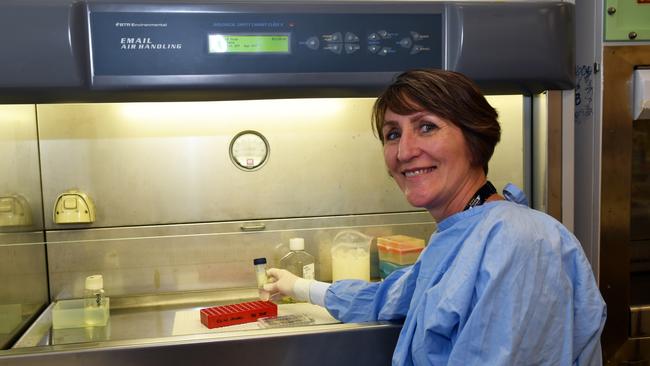Flinders University taking the guess work out of gastro infection control
Flinders University’s new intelligence on viral gastro is set to curb epidemics that regularly sweep through schools, aged care facilities and hospital wards.
SA News
Don't miss out on the headlines from SA News. Followed categories will be added to My News.
Flinders University scientists have launched a world-first trial aimed at stopping costly gastro outbreaks sweeping through schools, aged care facilities and hospital wards.
Lead researcher Associate Professor Jill Carr said standard medical advice was for people with viral gastroenteritis to stay away from other people for two to three days.
But she said that advice was not based on solid research and people could be infectious for longer.
“We need to know whether that (advice is) really based on science, whether the virus is gone in three days or not,” she said.
The first stage of the trial will test how long the gastro virus can survive on a given surface.
“We’ve literally got a piece of board, the same as would be on a bedside table in a hospital, and we’ve spotted a faecal extract on there from a patient sample,” Assoc Prof Carr said.

Researchers will then harvest the virus over a week to see if it is still infectious.
The team also plans to analyse patient samples to better understand why some people continue to “shed” the virus after they have recovered from the illness, sometimes for up to a year later.
Assoc Prof Carr said the new line of research was made possible by advances in technology that enabled scientists to grow human gut cells in a lab and infect them with norovirus. Norovirus is responsible for the majority of gastro outbreaks, with about 700 million people contracting the illness each year including 1.8 million Australians.
Most patients recover within days, but vulnerable people, such as the elderly and those with compromised immune systems, are more at risk.
The global economic burden of gastro infections was estimated at more than $61 billion in 2017, which included health costs and lost productivity.
The new research is funded by a 2018 Flinders Foundation Seed Grant and is being done in collaboration with SAHMRI. It hopes to inform new guidelines to prevent the spread of gastroenteritis.
Researchers hope to have initial results by the middle of this year.



